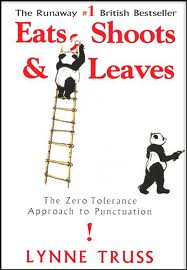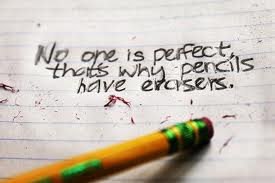Why Grammar Matters in Your Book
 I’ve been called a Grammar Nazi, a grammar geek, a grammar freak, a grammar nut, the grammar police, and a stickler. What they say behind my back, I don’t know.
I’ve been called a Grammar Nazi, a grammar geek, a grammar freak, a grammar nut, the grammar police, and a stickler. What they say behind my back, I don’t know.
I’m not that bad. I don’t critique tweets, personal emails, texts, slang, or other informal communication. I am, however, concerned about proper language usage when it comes to published works.
Before you think I’m here waving a red Sharpie and poised to attack your misspellings, mispronunciations, or mistaken word usage, you should know that first and foremost, grammar geeks are word lovers. Just like writers.
I spend one day a week talking about language on Amaze-ing Words Wednesday. Those posts range from grammar advice to etymology to word games. Language is fascinating. The human ability to communicate a wide range of emotion, information, and ideas sets us apart and allows us to accomplish together what we couldn’t do alone. Words have meaning and power. And I agree wholeheartedly that language isn’t all about where the dang comma should go.
However, where the comma goes matters.
 Lynne Truss illustrated this in her book Eats, Shoots and Leaves. The title is based on the funny story of a panda walking into a restaurant and brandishing a pistol. He devours a sandwich, fires his weapon, and starts to leave. The server asks, “Why did you do that?” The panda tosses an encyclopedia over his shoulder and answers, “Panda. Look it up.” The bartender finds the entry for panda, which in part reads, “Eats, shoots, and leaves.” One extra, misplaced comma made a huge difference. Ms. Truss goes on to make the case for why punctuation in particular matters in language.
Lynne Truss illustrated this in her book Eats, Shoots and Leaves. The title is based on the funny story of a panda walking into a restaurant and brandishing a pistol. He devours a sandwich, fires his weapon, and starts to leave. The server asks, “Why did you do that?” The panda tosses an encyclopedia over his shoulder and answers, “Panda. Look it up.” The bartender finds the entry for panda, which in part reads, “Eats, shoots, and leaves.” One extra, misplaced comma made a huge difference. Ms. Truss goes on to make the case for why punctuation in particular matters in language.
Grammar matters. It assists writers to convey meaning effectively to their readers.
Proper grammar is a framework. Language has structure. We know a sentence is comprised of a subject and a verb. He smiles. She swoons. He kisses. She slaps. These are the building blocks of any book. And there are rules about how you string these blocks together so that you communicate your meaning to others.
Rather than think of it like the rules at school (no chewing gum, must have a bathroom pass, etc.), think about your favorite sport. Mine is baseball. It’s a terrific game of throwing, hitting, fielding, catching, and running. A grand slam homer can send a crowd of spectators into a wild eruption of excitement. However, what if there were no rules? If everyone threw wherever, hit however, caught or didn’t catch, and ran in any direction? That’s not a sport; that’s chaos. And it wouldn’t be interesting to watch or play. You’d probably get smacked upside the head by a wooden bat in ten minutes.
Language is exciting – full of meaning, fluidity, and passion! But it needs a framework to keep that excitement alive.
Proper grammar demonstrates professionalism. What is one of the major complaints about self-published books? They haven’t been properly edited and are full of grammatical and spelling errors. Of course, that isn’t true of many self-pubbed works, and there are plenty of mistakes in traditionally published novels. However, paying attention to those details puts you at a more professional level.
When we see an egregious error on a company’s sign or a brochure, it speaks to a lack of professionalism in getting their content correct for the consumer. People may wonder about the quality of the product itself if the company wasn’t willing to take the necessary steps to ensure proper spelling on an advertisement.
Likewise, people expect the purveyors of words – writers – to have a fairly good grasp on language and its usage. It speaks to our quality level. I recently tossed aside a traditionally-published novel after a few chapters when I read several incorrect phrases, including “could care less.” (It’s could not care less.)
Poor grammar disrupts the flow. Have you ever been reading a marvelous novel and had to stop on a sentence and reread it? You might wonder who that pronoun “he” refers to or stumble on an “it’s” when there is no need for an apostrophe. Perhaps a misspelled word or a missing question mark gives you pause.
Whatever the error, a grammatical oops can disrupt flow. Since we want readers to remain deep in our plot, we should eliminate anything that encourages them to jump back out of the story. A few such moments in a novel are not a problem; we are human and make mistakes. However, if you disrupt the flow of your story too may times with grammatical errors that could have been avoided, there goes the reader.
So should you turn into a grammar geek? We aren’t all grammar geeks, of course. (Thank goodness! Right?) Moreover, I misspell words and miss errors plenty of times. We all do. Have you heard the saying, “Even perfect people use pencils with erasers”? I can’t recall the last time I read a novel and didn’t see a typo somewhere. Most books have a few to several errors, and these works have typically been viewed by numerous people prior to publication.

The standard is not getting a Ph.D. in Grammarology or achieving perfection. It’s recognizing the importance of grammar and exerting reasonable vigilance to get it right.
If you’re taking all that time to develop a story, write 60,000+ words, and focus on the importance of those words, why not check for proper structure so that you can best convey your meaning? If you suck at spelling and grammar, have a grammar geek friend or copy editor take a look.
Now grammar isn’t a first draft endeavor. Don’t sweat the comma when you’re throwing out the word count. But it’s worth paying attention to in the editing and revision stages. Because we deal in language, its usage matters. Grammar matters.
What do you think, readers and writers? Does grammar matter when you’re reading books? What do you do to ensure proper grammar in your own writing?
(And as always, correct me if you see a typo here.)
Julie Glover
Julie Glover loves whimsy, wit, and what-ifs, but her stories also explore real-life experiences and deep-down emotions. She believes we're stronger than we think, laughter is a necessary survival skill, and you can never own too many pairs of boots.